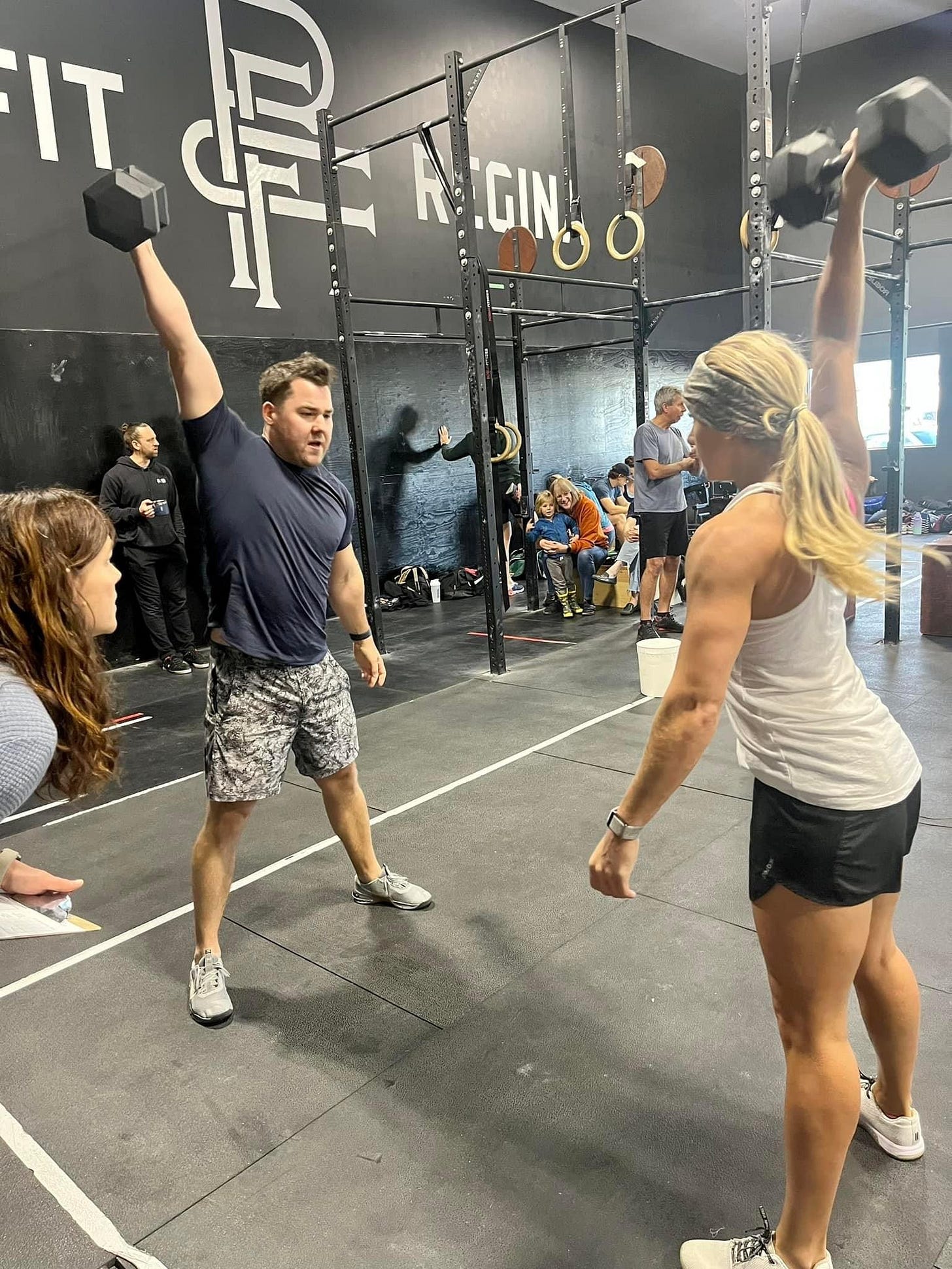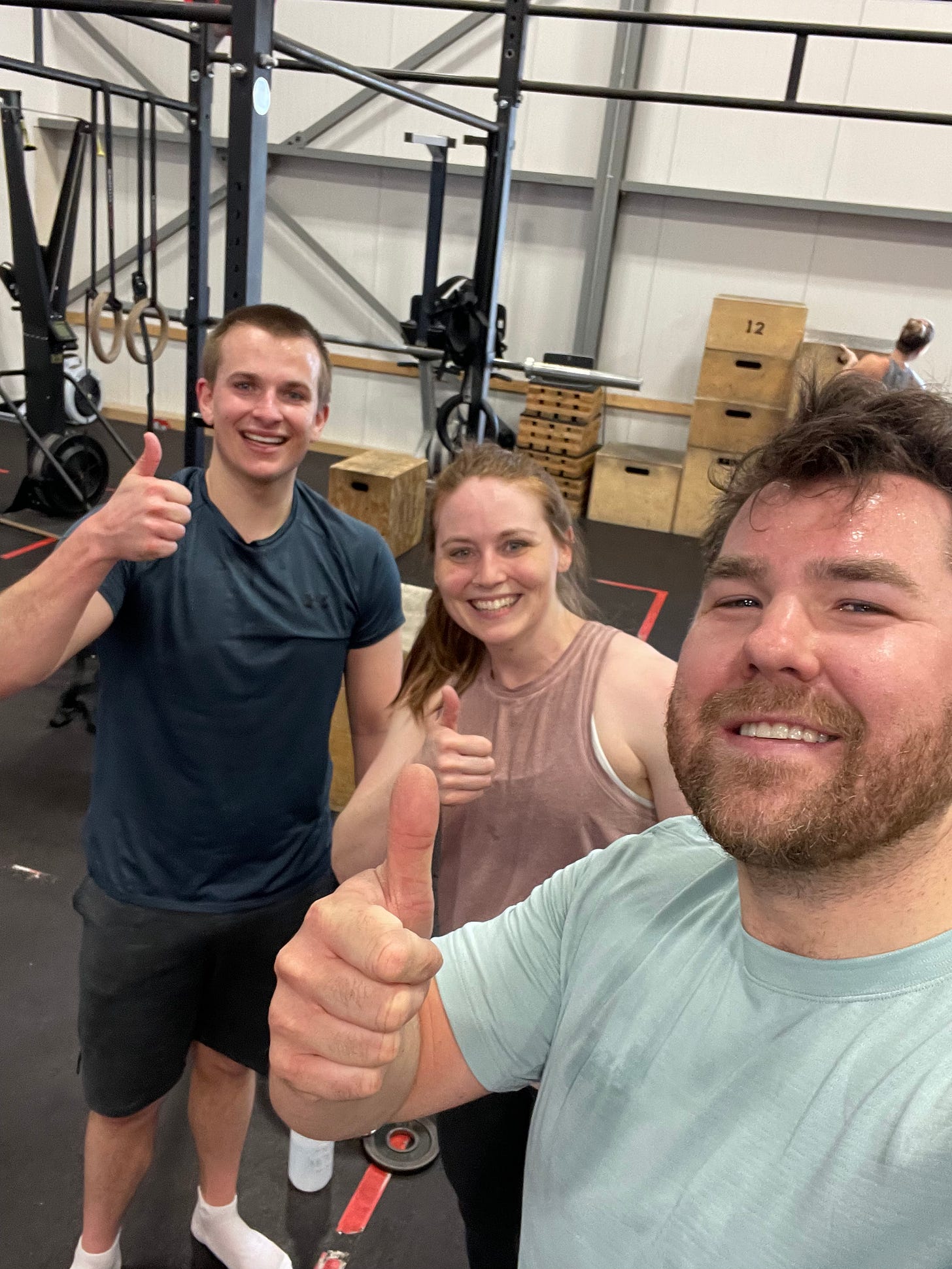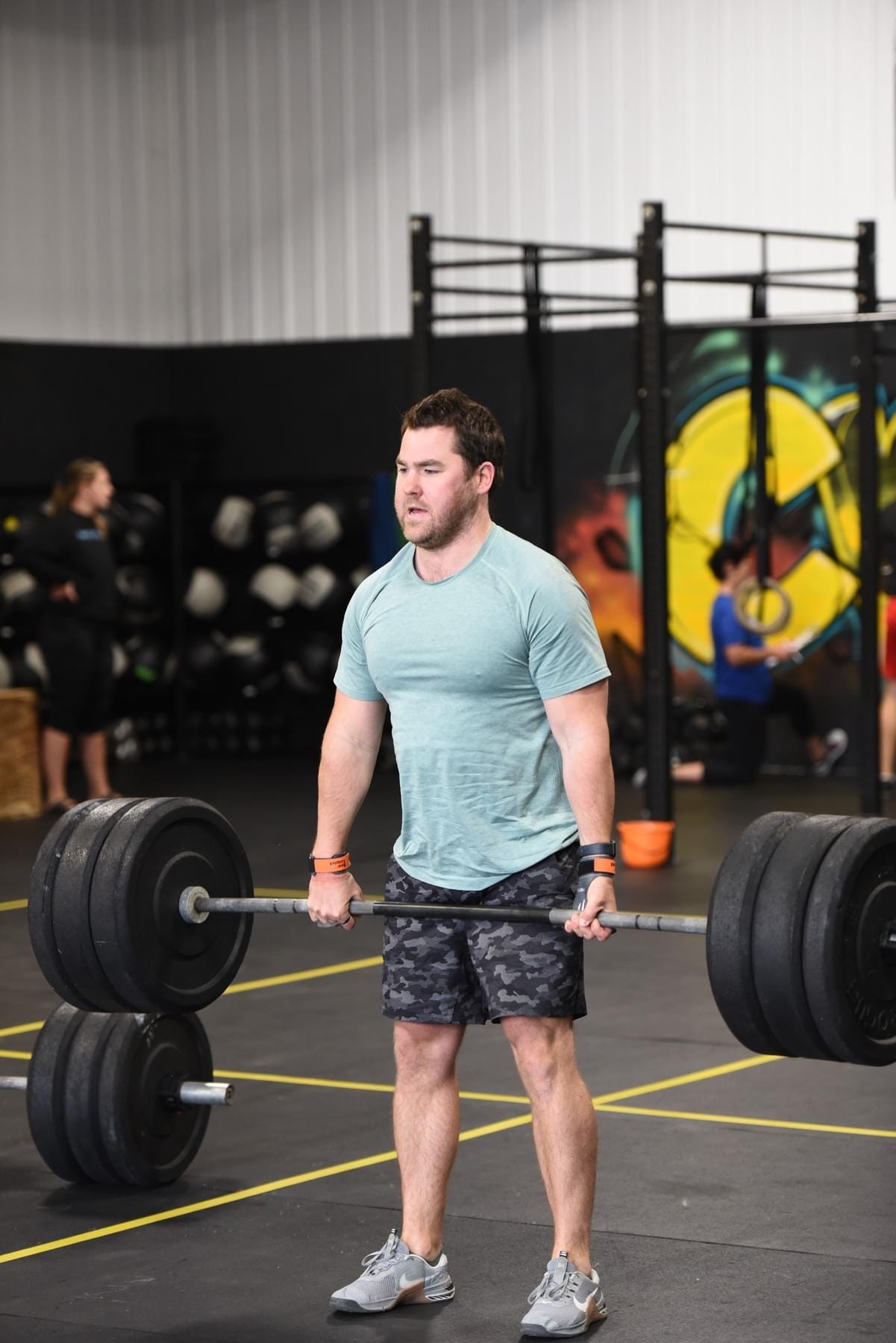Men's Mental Health Month: What the gym has given back to me.
June is Men’s Mental Health month, apparently. In the past I would have been all over this month, posting constantly about the importance of men’s mental health, the importance of speaking out, and promoting all of the programs and resources for mental health that are out there, encouraging men to speak to someone (i.e. a therapist) in order to manage the stresses and stressors we have in our lives.
Some people that know me in a professional capacity will remember my advocacy on improving mental health in politics, along with my colleague and friend Emile Scheffel. We met during the pandemic after Emile wrote an excellent online essay about improving the overall discourse and providing mental health support for elected officials and political staff. At the time I read Emile’s essay, I was in a very bad spot. I had just come out of managing a political campaign that ended up very badly, and my mental state was horrible. I remember tweeting at the time, which was around Christmas of 2020, that all I wanted to do was learn how to make Japanese food and “not die”, I believe were my words. Pretty grim.
I got through that period by partnering with Emile on the project he had founded called “PERSIST”, and we started a podcast to discuss how we can improve mental health in politics for both elected officials and, in our own cases, political staff. It was a good podcast - we had high-profile guests like Christy Clark, Tim Powers, former NDP MP Mumilaaq Qaqqaq, and we interviewed the gentleman that, we found out, was the pre-eminent expert (truly) on mental health in politics, Dr. Ashley Weinberg.
But I found in doing that podcast, and writing op-eds, and directly lobbying provincial government ministers to take measurable actions to improve mental health for political staff, that even though I talk a lot about mental health, my own didn’t really improve. A number of years ago I said to another mental health advocate, Jim Demeray, that I find Bell Let’s Talk Day to be a tough day. Why? Jim asked me. On that day, when everyone shares their stories, it reminded me of how much pain people are in every single day, and it just always seemed to remind me of my own challenges and struggles.
Not very resilient
Whenever I speak on the topic of mental health, I say that my mental health struggles, or symptoms, manifest differently compared to the person next to me. We often hear stories of depression where people say they cry in bed all day, or drink or do drugs or take other substances as a way to cope with their symptoms of trauma and perhaps genetic mental illness. That hasn’t been own experience, and I’m thankful for that because substance abuse can result in the worst possible outcomes for those that suffer from it.
My mental illness shows up various ways. Over the years (and certainly still from time to time) I have dealt with depression, but it’s not lying in bed crying or drinking too much or doing drugs. For me, there’s different offshoots of depression: it’s despair, anxiety, escapism, anger and rage, gloom, score-settling and resentment - a particularly nasty symptom that has resulted in broken relationships and sometimes professional fuckups that have, at times, been hard to come back from.
But the best way to sum all of those symptoms up, I have come to understand, is a lack of mental resilience. For the longest time, whenever I had even the slightest setbacks in my life, I would spiral and completely shut down. I think the year was 2014 and I worked at the Legislative Building in Regina, and I interviewed for a position in executive council that I didn’t end up getting. I was so devastated I didn’t get the job that I left work early and lay in my bed until the next day, feeling absolutely depleted and angry at the result - another setback for me. I would go through that cycle on almost all setbacks in my life, big or small, for a very long time.
A remedy
My journey with mental illness and depression changed - permanently, I hope - in April 2022, when I stepped into Villains Strength and Conditioning in Regina. From that day, my mental health improved almost immediately.
Villains is a “recovering” CrossFit gym, which means we do almost everything that CrossFit gyms do except without the weird things like gymnastics, and we do the exercising of group classes (more on that later). On any given day we do programming at Villains that includes a Warm-Up, then a Strength section that usually includes lifts like deadlifts, bench press, squats, and push presses, then an Accessory piece which is more strength stuff, and then Conditioning (everyone’s favourite). For example, one morning we could do heavy deadlifts as the main strength piece, followed up by a conditioning set that looks like this:
In 12 minutes
5 rounds:
10 Burpees
10 Thrusters (95 pound barbell for men, 65 pounds for women)
-once complete-
Max effort Calorie Row/Ski with the remaining time
To some, this workout may look like hell, and guess what: to those of us that go to Villains, it also looks like hell. But it’s the feeling afterwards that makes me going back again and again and again.
I have spent years in therapy with a wonderful psychologist in Regina named Darrell Davis who has helped me understand myself better than I ever could have on my own for the rest of my life. I highly recommend therapy to anyone and I’m encouraged that many of my friends and colleagues do therapy regularly. But almost a decade in therapy hasn’t provided me with anywhere near what I get from the gym in terms of day-to-day and ongoing mental health management.
For me, exercise is indeed the best medicine.
The science
There’s a bunch of science and physiological reasons behind why exercise improves mental health and in my case mental resilience. I’m not a learned man of science so I asked ChatGPT to explain it to me. Here’s what it said:
Exercise, especially intense or coordinated movement like lifting or conditioning workouts, increases neuroplasticity—your brain’s ability to adapt, learn, and recover from stress.
It boosts BDNF (Brain-Derived Neurotrophic Factor), which supports neuron growth and protects against stress-related damage. Higher BDNF = a more resilient, adaptable brain.
Think of it like upgrading your brain’s shock absorbers.
Every hard workout you finish proves something to yourself: you can do difficult things.
That repeated exposure to discomfort, struggle, and failure builds self-efficacy, which is a core pillar of mental resilience.
You start thinking: If I can get through that WOD (workout of the day), I can handle this work crisis / parenting stress / life curveball.
Makes perfect sense to me.
Community
The other secret sauce of going to the gym for me is the community. I have worked solo, either at home or sporadically at a coworking space, for almost seven years now, which means I haven’t been to a traditional office and been around a community of coworkers for a long time now. Even though I’m an introvert, it turns out that it’s good for me to be around people sometimes!
Research confirms that community at the gym is a great thing for us. Training alongside others creates shared struggle, which builds trust, connection, and a sense of belonging - all of which are proven to reduce stress and protect against depression. The group dynamic also reinforces consistency, identity, and accountability, helping people show up even when motivation dips. There have been a lot of days where I’m not that enthused about the workout itself but I’m looking forward to seeing the people at the gym.
Most of the people that work out at 6:30am a few times a week I never see outside of the gym, although a couple I have become legitimate friends with and really value those new relationships. When I celebrated my 500th class at Villains earlier this year, a ton of people showed up for it, and we show up the same for others that achieve milestones at the gym as well.
Can’t stop, won’t stop
A while after I started at the gym and had been going consistently, people started noticing that I physically looked different. I visited friends in Saskatoon that hadn’t seen me in a while and they were stunned at how I looked. Since I’ve been at the gym my arms have definitely gotten bigger, and I can lift pretty heavy weights. I can run faster and longer than I ever have, and depending on how well I’m eating (which is a struggle for me to be honest) my body weight can be at a reaosnable measure.
All of those physical things are nice. But it doesn’t really doesn’t matter to me. The gym is the greatest thing that’s ever happened for my mental health and I will return to it, or keep exercising in whatever way I can for as long as I possibly can, solely because of that one benefit. I owe it to myself, my family, and my friends to keep doing that.
Thanks for reading, and see you at the gym.
-Dale
P.S. I’ve found a few people to be great follows and reads when it comes to men’s health and mental health. Here’s a few:
Richard Reeves at the American Institute for Boys and Men.
Scott Galloway writes and podcasts very well on this.
Jocko Willink on mental resilience:
The Movember Institute. Movember was initially known as a fundraising vehicle for prostate cancer, but they have evolved to do excellent work in men’s mental health and The Movember Institute is fantastic.
And here is the comedian Jimmy Carr explaining his approach to mental health, and his struggles with anxiety, in this clip from the Diary of a CEO. He’s right - it’s hard to have anxiety when you’re bench pressing 225 pounds off your chest!








